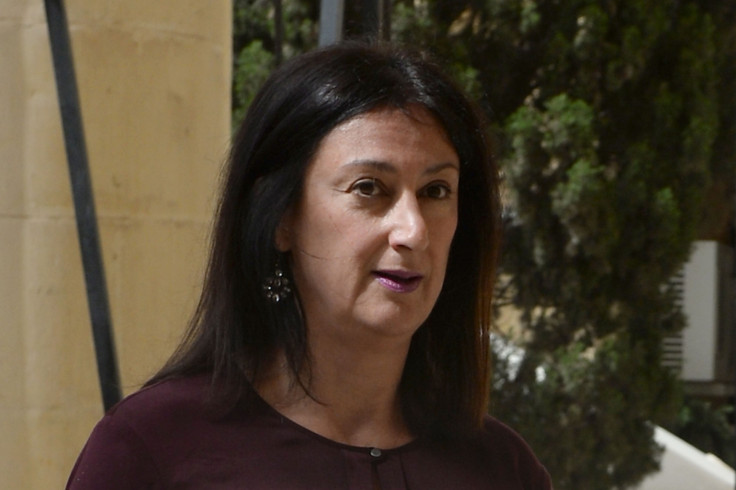Malta car bomb: 10 arrested over murder of blogger Daphne Caruana Galizia
The investigative journalist had accused PM Joseph Muscat and aides of corruption shortly before her death.
Police in Malta have arrested ten people in connection with the murder of blogger Daphne Caruana Galizia.
The investigative journalist was killed by a car bomb near her home in Bidnija on 16 October. On her Running Commentary blog she had accused several top politicians in Malta of corruption.
Her criticism was also levelled at Prime Minister Joseph Muscat and his aides, who she accused of being linked to offshore companies and payments from the government of Azerbaijan.
Muscat said that the ten suspects are all Maltese nationals and were arrested on Monday morning (4 December). He said that the arrests resulted from a government investigation into the journalist's murder.
Police have 48 hours to question the suspects.
Following the death, the Maltese government offered a €1m (£890,000) reward for information about Caruana Galizia's murder.
Muscat added that some of the detainees were already known to police, while others had previous criminal records. He would not comment on whether the mastermind behind the murder had been arrested.
"I have a clear idea of what they did and who they are but I cannot give out more details at this time," Muscat told reporters.
Caruana Galizia was described as "one of Malta's most important, visible, fearless journalists" by former Home Affairs minister Louis Galea.
She had been investigating the revelations from the Panama Papers, the 11.5 million documents leaked from the law firm Mossack Fonseca. WikiLeaks founder Julian Assange has offered a €20,000 reward for any information that leads to the conviction of her killers.
Her funeral was attended by hundreds of people, but her children barred the EU state's leaders from coming. They called on Muscat to resign after their mother's death, accusing him of failing to uphold "fundamental freedom".
EU lawmakers who conducted a fact-finding mission in Malta last week said a "perception of impunity" existed in the EU state.
The head of the delegation, socialist lawmaker Ana Gomes, said the murder aimed at "instilling fear in everyone, especially those involved in investigating and prosecuting cases of money laundering and corruption."























